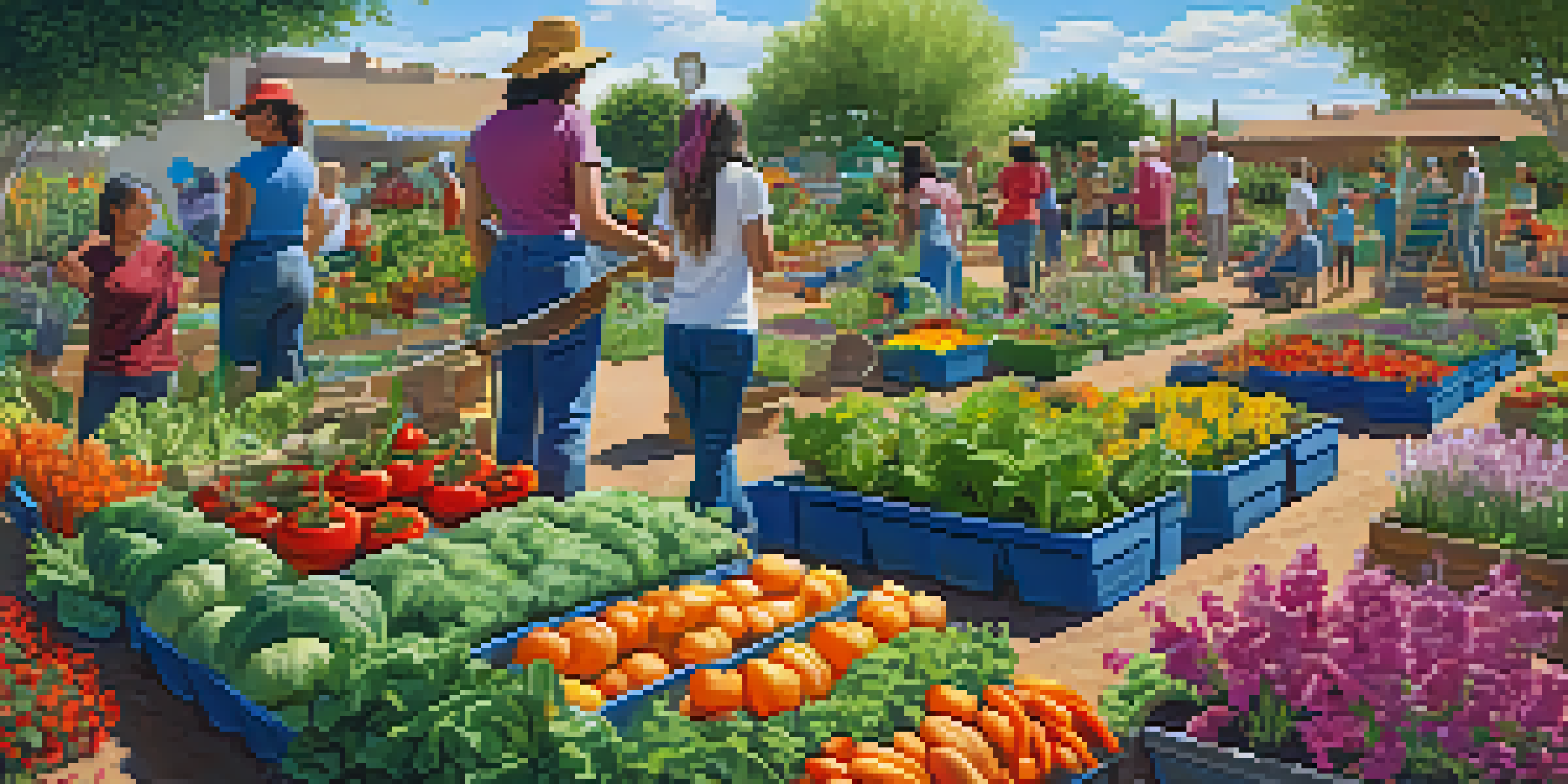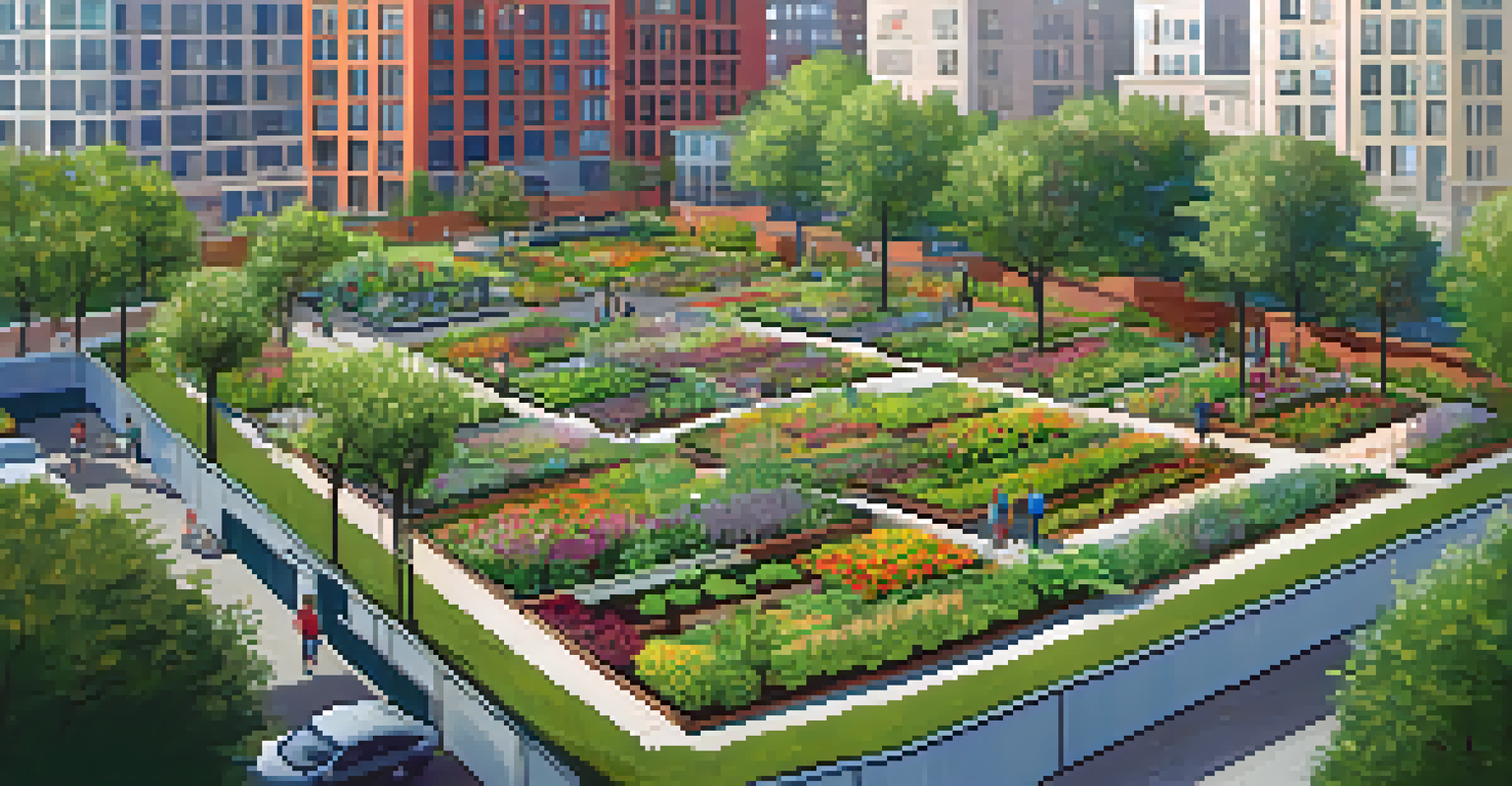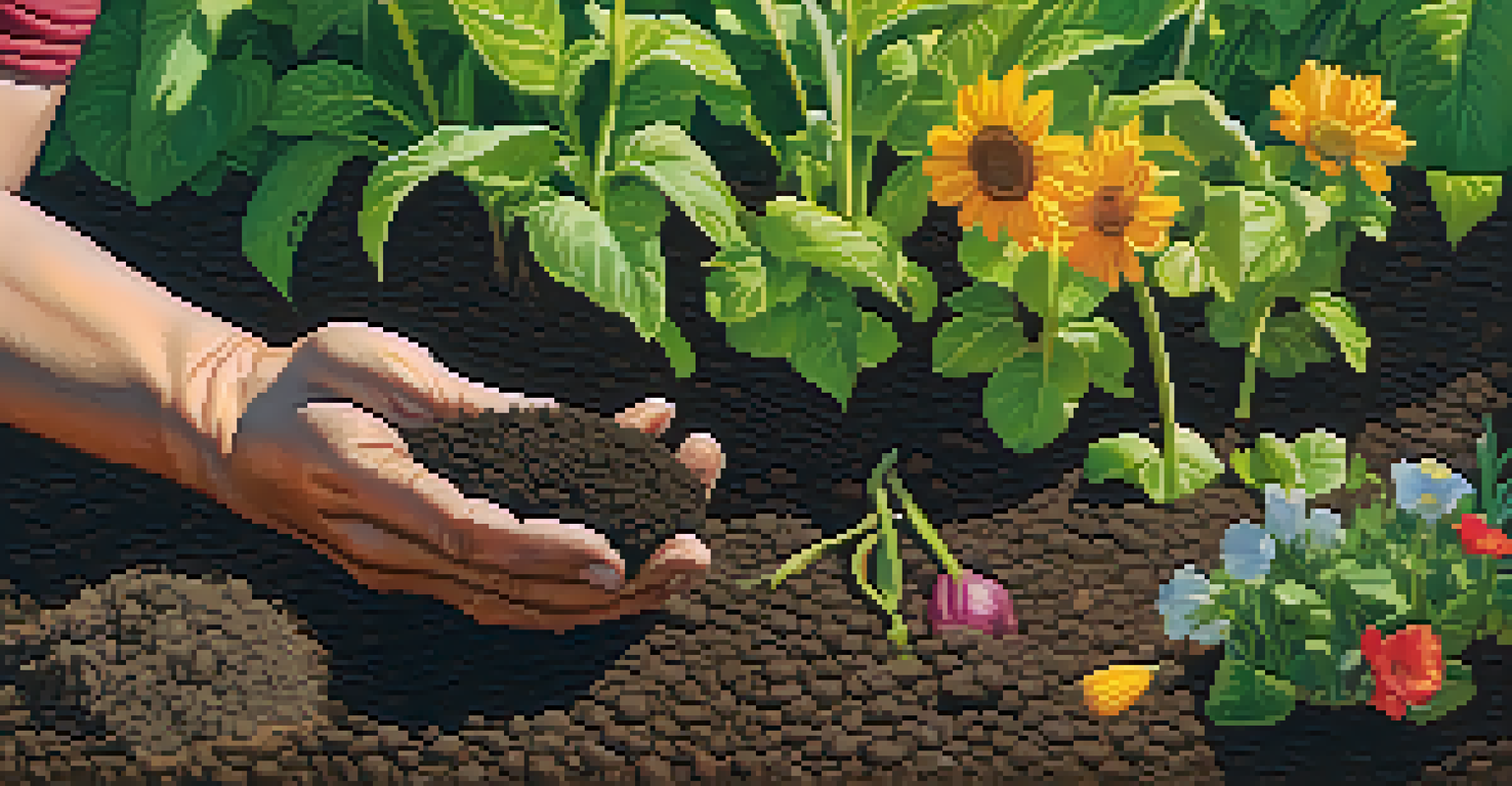Exploring Arizona's Community Gardens: A Growing Trend

Understanding Community Gardens and Their Purpose
Community gardens are shared spaces where individuals come together to grow food, flowers, and more. They often transform vacant lots or underutilized areas into vibrant hubs of activity. In Arizona, these gardens not only provide fresh produce but also foster a sense of community among diverse populations.
Community gardens are a way to bring people together, to build community, and to grow food in a more sustainable way.
These gardens serve multiple purposes: they promote sustainability, support local food systems, and encourage environmental stewardship. For many, they are a source of fresh fruits and vegetables, especially in urban areas where access to healthy food can be limited. Additionally, community gardens offer educational opportunities for gardening skills and nutrition.
As more people recognize the benefits of growing their own food, community gardens in Arizona have become places of learning and social interaction. They provide a platform for individuals to connect with nature and each other, creating bonds that strengthen neighborhoods and communities.
The Benefits of Community Gardens for Local Residents
Community gardens offer a myriad of benefits to local residents, from improved health to enhanced social connections. By growing their own food, individuals can enjoy fresh produce that is often more nutritious than store-bought options. Studies show that people who participate in gardening tend to have better diets and overall health.

Beyond the physical health benefits, these gardens also contribute to mental well-being. Gardening has been shown to reduce stress and promote mindfulness, allowing individuals to escape the hustle and bustle of daily life. Imagine spending a sunny afternoon tending to plants, feeling the soil between your fingers—it's a therapeutic experience.
Community Gardens Foster Connection
These shared spaces not only provide fresh produce but also create opportunities for social interaction and community bonding.
Moreover, community gardens serve as a gathering place for residents, fostering friendships and collaboration. Whether it's sharing gardening tips or organizing a potluck featuring homegrown ingredients, these interactions create a sense of belonging and community spirit.
Highlighting Arizona's Diverse Community Gardens
Arizona boasts a variety of community gardens, each reflecting the unique culture and needs of its local area. From urban environments in Phoenix to rural settings in Tucson, these gardens cater to a diverse population. Some focus on traditional crops, while others experiment with native plants and sustainable practices.
Gardening adds years to your life and life to your years.
For example, the Roosevelt Growers Garden in Phoenix emphasizes organic farming methods and serves a multicultural community. Here, gardeners share traditional planting techniques and recipes, enriching the experience for everyone involved. In contrast, the Tucson Community Gardens promote sustainable practices, such as composting and water conservation, tailored to the arid climate.
These diverse gardens not only beautify neighborhoods but also educate the public about local flora and sustainable gardening practices. They engage residents in hands-on learning, helping them appreciate the importance of biodiversity and ecological balance.
The Role of Local Organizations in Supporting Gardens
Local organizations play a crucial role in the success of community gardens across Arizona. They often provide resources, funding, and educational programs that empower gardeners and enhance their experiences. Collaborations between non-profits, schools, and local governments help to establish and maintain these green spaces.
One notable organization is the Arizona Community Garden Network, which connects garden initiatives throughout the state. They offer training workshops, tools, and even grant opportunities to help gardens thrive. Such support is vital for ensuring that these gardens remain sustainable and beneficial to the community.
Health Benefits of Gardening
Engaging in community gardening can enhance physical health by providing access to nutritious food and promoting mental well-being.
Additionally, many local organizations advocate for policies that protect community gardens from development pressures. By working together, these groups help to elevate the importance of green spaces in urban planning and community health.
Challenges Facing Community Gardens in Arizona
While community gardens are thriving in Arizona, they do face several challenges that can hinder their growth. Limited access to water, especially in arid regions, makes it difficult for gardeners to maintain their plots. Additionally, securing land for gardens can be a struggle due to urban development and rising property values.
Moreover, community gardens often rely on volunteers and donations, which can fluctuate over time. This dependency means that maintaining a garden's operations can become difficult without a steady stream of support. When community involvement wanes, gardens may struggle to survive.
Finally, issues related to pests and soil quality can present ongoing challenges. Gardeners must remain vigilant and informed about sustainable practices to combat these problems, ensuring their gardens remain healthy and productive.
How to Get Involved with Community Gardens
Getting involved with a community garden is easier than you might think! Many gardens welcome new members, regardless of experience. Simply reaching out to a local garden or visiting their website can provide you with information on how to join and participate.
Volunteering is another fantastic way to contribute, even if you don’t have a garden plot of your own. Many gardens host events like planting days, workshops, or harvest festivals where you can lend a hand. This not only helps the garden but also connects you with fellow community members.
Support from Local Organizations
Local organizations are essential in providing resources and support to ensure the sustainability and success of community gardens.
Additionally, consider donating supplies, seeds, or funds to support the ongoing efforts of these gardens. Every little bit helps, and your contribution can make a significant difference in ensuring these green spaces thrive for years to come.
The Future of Community Gardens in Arizona
The future looks bright for community gardens in Arizona, as more residents recognize their value. With a growing interest in sustainability and local food production, these gardens are likely to continue expanding. Urban planners and local governments are beginning to see the importance of integrating green spaces into community designs.
As awareness increases, more communities are starting their own gardens, leading to a ripple effect across the state. Events like garden tours and farmer's markets are becoming popular, showcasing the hard work and creativity of local gardeners. This growing movement not only beautifies neighborhoods but also strengthens community ties.

Ultimately, community gardens are more than just places to grow food; they represent a shift towards a healthier, more connected way of living. By continuing to support and engage with these gardens, Arizonians can cultivate a sustainable future together.